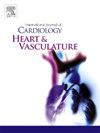Role of Lipoprotein (A) in aortic valve stenosis: Novel disease mechanisms and emerging pharmacotherapeutic approaches
IF 2.5
Q2 CARDIAC & CARDIOVASCULAR SYSTEMS
引用次数: 0
Abstract
Lipoprotein(a) (Lp(a)) has garnered increasing attention as a significant contributor to the pathogenesis of aortic stenosis (AS), prompting a focused investigation into innovative pharmacological strategies to target this lipoprotein and its associated risks. Despite its recognized role in AS progression, Lp(a) often remains overlooked in clinical assessments, mirroring the broader challenges observed in holistic disease management. This review delves into the mechanistic intricacies of Lp(a) involvement in AS pathophysiology and its potential as a therapeutic target. Drawing parallels with the imperative for healthcare providers to proactively engage with patients regarding treatment regimens, this review underscores the essential role of cardiologists and physicians in recognizing and addressing Lp(a) as a modifiable risk factor in AS management. Furthermore, it explores promising avenues of novel drug approaches, including emerging pharmacotherapies and targeted interventions, aimed at modulating Lp(a) levels and attenuating AS progression. By navigating the complexities of Lp(a) modulation and its implications for AS management, this review aims to bridge critical gaps in understanding and clinical practice, ultimately optimizing treatment strategies and improving patient outcomes in the realm of AS therapeutics.
脂蛋白 (A) 在主动脉瓣狭窄中的作用:新的疾病机制和新的药物治疗方法
脂蛋白(a)(Lp(a))作为主动脉瓣狭窄(AS)发病机制的一个重要因素,已引起越来越多的关注,促使人们集中研究针对这种脂蛋白及其相关风险的创新药理策略。尽管脂蛋白(a)在主动脉瓣狭窄进展中的作用已得到公认,但在临床评估中仍经常被忽视,这反映了在整体疾病管理中观察到的更广泛的挑战。本综述深入探讨了脂蛋白(a)参与强直性脊柱炎病理生理学的复杂机制及其作为治疗靶点的潜力。本综述与医疗保健提供者必须积极主动地与患者就治疗方案进行沟通相类似,强调了心脏病专家和医生在认识和处理 Lp(a) 这一强直性脊柱炎管理中可改变的风险因素方面的重要作用。此外,它还探讨了新型药物治疗方法的前景,包括新兴药物疗法和靶向干预,旨在调节脂蛋白(a)水平并减轻强直性脊柱炎的进展。通过了解 Lp(a) 调节的复杂性及其对强直性脊柱炎治疗的影响,本综述旨在弥合认识和临床实践中的关键差距,最终在强直性脊柱炎治疗领域优化治疗策略并改善患者预后。
本文章由计算机程序翻译,如有差异,请以英文原文为准。
求助全文
约1分钟内获得全文
求助全文
来源期刊

IJC Heart and Vasculature
Medicine-Cardiology and Cardiovascular Medicine
CiteScore
4.90
自引率
10.30%
发文量
216
审稿时长
56 days
期刊介绍:
IJC Heart & Vasculature is an online-only, open-access journal dedicated to publishing original articles and reviews (also Editorials and Letters to the Editor) which report on structural and functional cardiovascular pathology, with an emphasis on imaging and disease pathophysiology. Articles must be authentic, educational, clinically relevant, and original in their content and scientific approach. IJC Heart & Vasculature requires the highest standards of scientific integrity in order to promote reliable, reproducible and verifiable research findings. All authors are advised to consult the Principles of Ethical Publishing in the International Journal of Cardiology before submitting a manuscript. Submission of a manuscript to this journal gives the publisher the right to publish that paper if it is accepted. Manuscripts may be edited to improve clarity and expression.
 求助内容:
求助内容: 应助结果提醒方式:
应助结果提醒方式:


